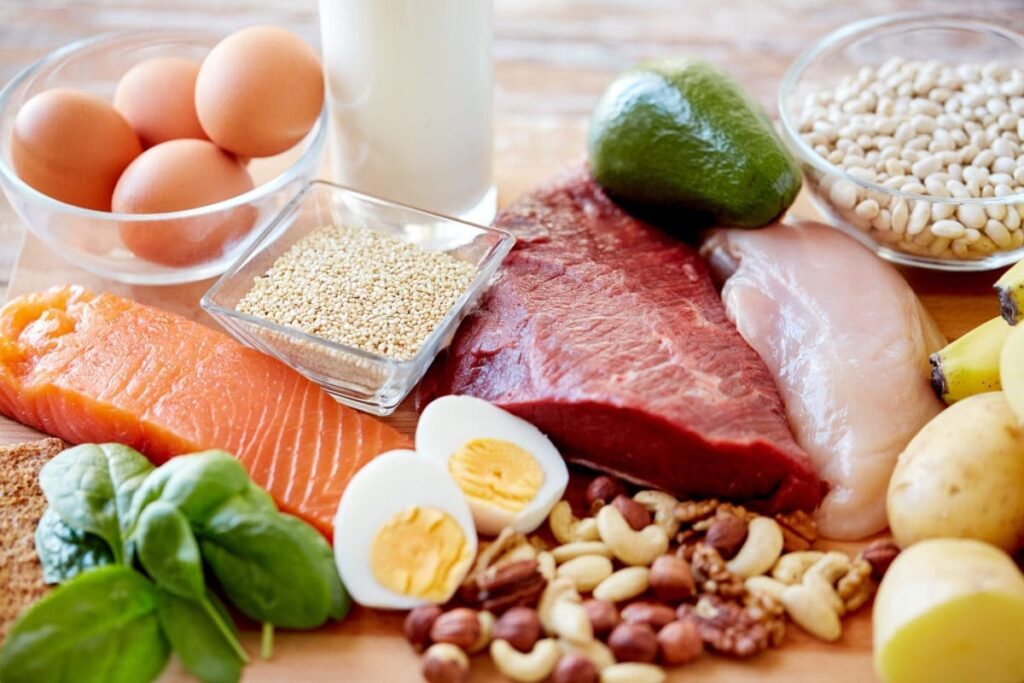In the fast-paced world we live in, maintaining a balanced diet is often overlooked. Many people focus on quick fixes or follow trends, but the foundation of good health lies in incorporating nutrient-rich foods into every meal. These foods are packed with vitamins, minerals, antioxidants, and other nutrients that support bodily functions and boost overall well-being. By making nutrient-dense choices, you can transform your diet and set the stage for a healthier life.
When you think of nutrient-rich foods, consider whole foods like fruits, vegetables, lean proteins, and whole grains. These are not only rich in essential nutrients but also support various bodily systems. For example, leafy greens like spinach, kale, and swiss chard are rich in vitamins A, C, and K, while fruits like berries provide a powerful antioxidant boost. These foods are easy to incorporate into your daily meals and can be enjoyed in salads, smoothies, or as side dishes. The more color and variety you add to your meals, the more likely you are to meet your daily nutritional requirements.
Why Nutrient-Rich Foods Are Crucial for Your Diet
A well-balanced diet isn’t just about filling your stomach; it’s about nourishing your body with the right nutrients. Nutrient-rich foods are crucial because they fuel every aspect of your body’s functions. They help maintain energy levels, support your immune system, promote healthy digestion, and keep your skin glowing. Without these vital nutrients, your body may struggle to perform even basic tasks.
For example, foods like fatty fish—salmon, sardines, and mackerel—are packed with omega-3 fatty acids, which are essential for brain health. Adding these to your diet can help with cognitive function, memory, and even reduce inflammation in the body. Additionally, avocados are an excellent source of healthy fats that help your body absorb fat-soluble vitamins like A, D, E, and K. These fats also help support heart health and keep cholesterol levels in check.
Incorporating nutrient-dense foods like these ensures your body has what it needs to function at its best. It’s not about eating less, but eating better. Opting for high-quality, nutrient-dense foods can enhance your overall health and ensure you’re getting the most out of every meal.
The Link Between Nutrient-Rich Foods and Health and Wellness
When you focus on incorporating health and wellness into your daily routine, the foundation should be a diet filled with nutrient-rich foods. A balanced diet doesn’t just improve physical health; it also supports mental well-being. Proper nutrition can enhance mood, boost cognitive function, and improve sleep quality. The benefits of eating nutrient-dense foods go beyond physical appearance—these foods can actually change the way you feel and function.
For instance, magnesium-rich foods like nuts, seeds, and dark chocolate are known to promote relaxation and improve sleep. Likewise, foods high in vitamin D, such as fortified dairy products, egg yolks, and mushrooms, help regulate mood and prevent conditions like depression. By maintaining a nutrient-dense diet, you’re actively taking steps to not only improve your physical health but also your emotional and mental well-being.
Building a Nutrient-Rich Plate: Essential Food Groups
To ensure you’re getting the full spectrum of nutrients, your plate should consist of a variety of nutrient-dense foods from all the food groups. Here’s how to build a nutrient-rich plate:
Vegetables: The Nutrient Powerhouses
Vegetables are an essential part of a nutrient-dense diet. Leafy greens like kale, spinach, and arugula are packed with vitamins, fiber, and antioxidants that promote digestive health and protect against chronic diseases. Cruciferous vegetables like broccoli, cauliflower, and Brussels sprouts are particularly beneficial for detoxification and have been shown to reduce the risk of cancer.
Root vegetables like sweet potatoes and carrots are also great options. They are high in fiber and contain a variety of vitamins and minerals, including beta-carotene, which is converted to vitamin A in the body and is vital for eye health and immune function.
Protein: Building Blocks for Your Body
Protein is another essential component of a healthy, nutrient-rich diet. Lean proteins like chicken, turkey, tofu, and legumes provide the building blocks your body needs to repair muscles, tissues, and cells. Additionally, protein helps maintain energy levels and supports a healthy metabolism.
If you’re looking for plant-based protein sources, beans, lentils, and quinoa are excellent options. These foods are not only packed with protein but also contain high amounts of fiber, which promotes digestive health and helps maintain healthy cholesterol levels.
Whole Grains: The Energy Boosters
Whole grains like brown rice, quinoa, barley, and oats are rich in fiber, which promotes satiety, regulates blood sugar, and supports healthy digestion. Unlike refined grains, which lose their nutritional value during processing, whole grains retain their fiber, vitamins, and minerals, making them an essential part of a balanced diet.
Whole grains are also an excellent source of B vitamins, which are important for energy production and the proper functioning of the nervous system. Including a variety of whole grains in your meals helps keep you feeling full longer and provides a steady source of energy throughout the day.
Healthy Fats: Supporting Brain and Heart Health
Incorporating healthy fats into your diet is crucial for nutrient absorption and overall well-being. Healthy fats, such as those found in avocados, nuts, seeds, and olive oil, support brain function, regulate hormones, and promote heart health. Omega-3 fatty acids, found in fatty fish like salmon and sardines, are particularly beneficial for reducing inflammation, supporting cognitive function, and promoting heart health.
Healthy fats also help your body absorb fat-soluble vitamins, such as vitamins A, D, E, and K. These vitamins play a role in maintaining healthy skin, bones, and immune function. Including sources of healthy fats in your diet helps ensure you’re getting the most out of the nutrients in your meals.
Hydration: An Overlooked Key to Health and Wellness
While food plays a significant role in health and wellness, hydration is equally important. Drinking enough water supports digestion, helps transport nutrients to cells, and maintains the balance of bodily fluids. Dehydration can lead to fatigue, headaches, and impaired physical and cognitive function, so it’s important to drink enough water throughout the day.
Herbal teas, coconut water, and even water-rich fruits like watermelon and cucumber can also help keep you hydrated. Making hydration a priority ensures that your body can fully benefit from the nutrient-rich foods you’re eating.
Tips for Incorporating Nutrient-Rich Foods Into Your Daily Routine
Making nutrient-dense foods a regular part of your diet doesn’t have to be complicated. Here are a few simple tips to help you get started:
- Start with Small Changes: Begin by adding a vegetable to every meal. Whether it’s spinach in your smoothie or roasted sweet potatoes with dinner, small changes can add up over time.
- Plan Your Meals: Plan your meals in advance to ensure you’re including a variety of nutrient-dense foods throughout the week. This also helps reduce the temptation to rely on processed foods.
- Snack Smart: Instead of reaching for chips or candy, choose nutrient-dense snacks like nuts, seeds, or fruit. These provide lasting energy and are rich in essential vitamins and minerals.
- Experiment with New Recipes: Try new foods and recipes to keep your meals exciting. Add a variety of herbs and spices to enhance the flavor and nutritional value of your meals.
- Stay Consistent: Consistency is key when it comes to incorporating nutrient-rich foods into your diet. Make it a habit to include these foods in every meal, and over time, you’ll notice the benefits to your health and wellness.
Conclusion
Incorporating nutrient-rich foods into your diet is a simple but powerful way to improve your overall health and wellness. These foods provide your body with the nutrients it needs to function at its best, promoting everything from energy and immune function to cognitive health and emotional well-being. By focusing on whole foods like vegetables, lean proteins, whole grains, and healthy fats, you can create meals that not only taste great but also nourish your body from the inside out. Make these changes today, and you’ll be on your way to a healthier, more vibrant future.


